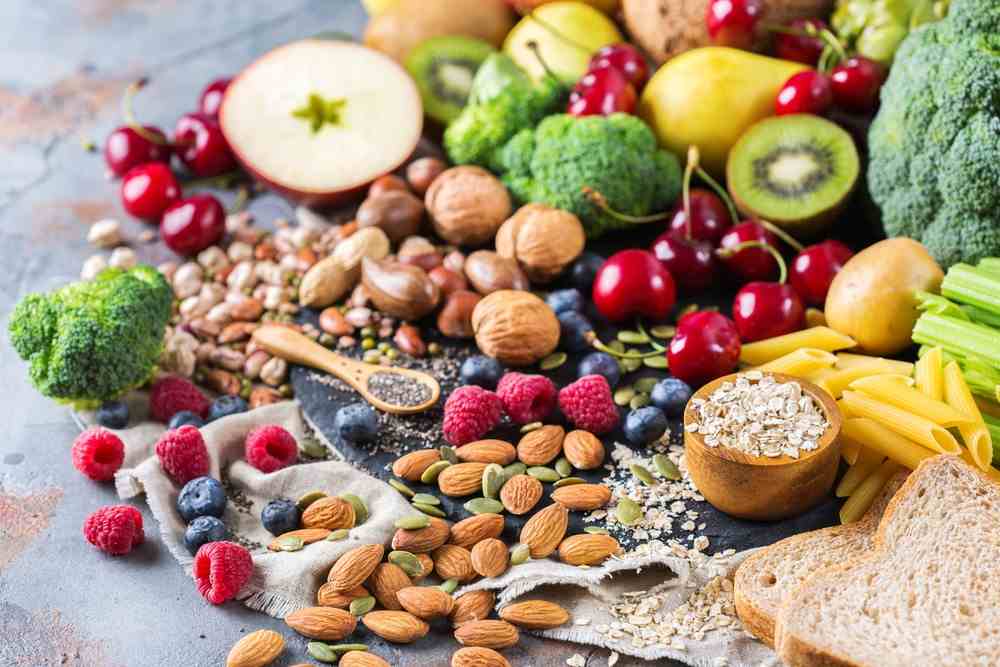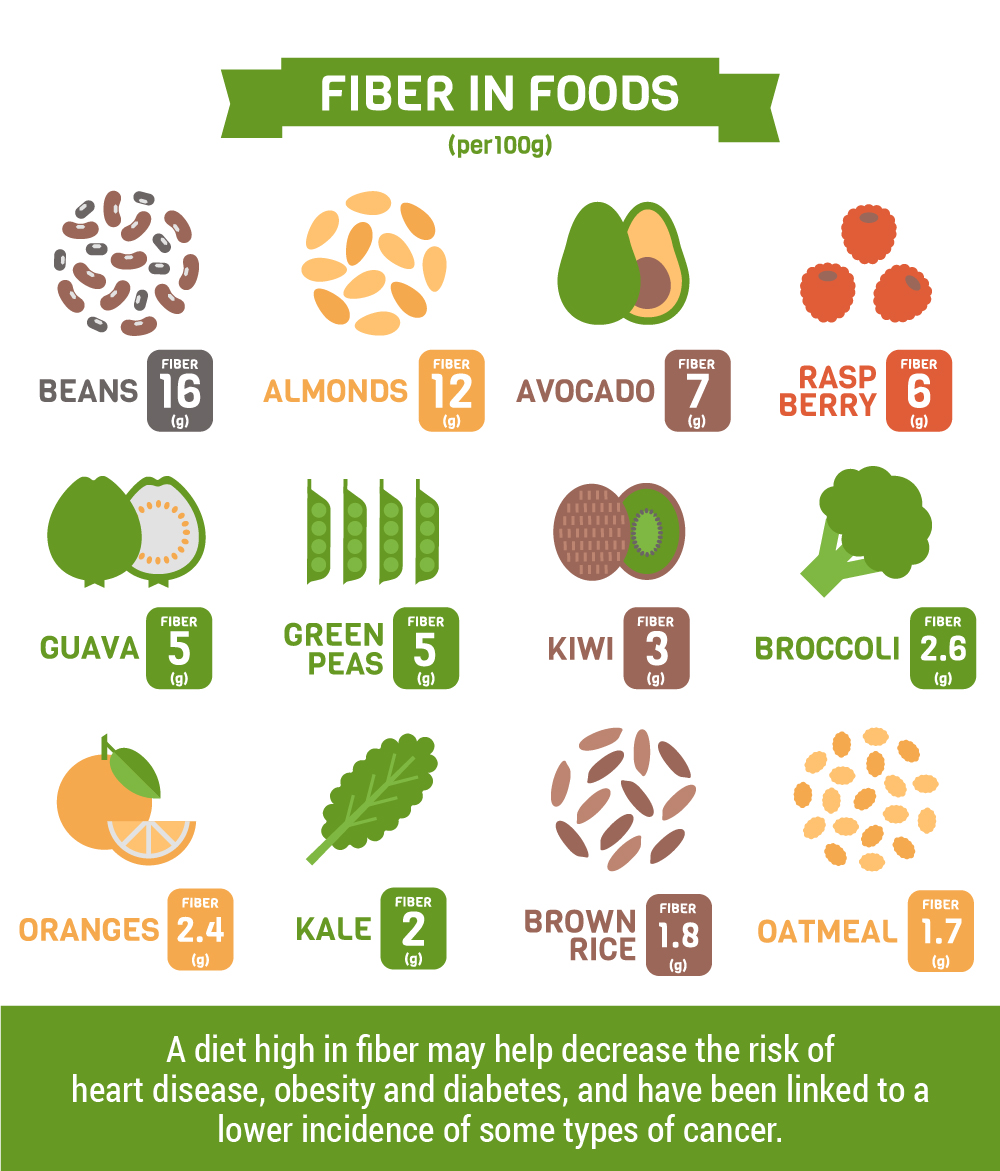How to Make High-Fiber Food for IBS Sufferers

Living with Irritable Bowel Syndrome (IBS) can feel like navigating a minefield, especially when it comes to diet. But what if I told you that high-fiber foods, often feared by IBS sufferers, can actually be your allies? Imagine your digestive system as a delicate ecosystem. Just like a garden, it needs the right nutrients to thrive. Fiber is like the fertilizer that keeps your gut healthy and happy. So, let's dive into the world of Resep makanan tinggi serat untuk penderita iritasi usus and explore how you can create gut-friendly meals that are both delicious and beneficial.
Understanding the High-Fiber Diet for IBS
A high-fiber diet is crucial for maintaining good digestive health. Fiber helps to regulate bowel movements, prevent constipation, and promote a healthy gut microbiome. However, not all fibers are created equal, especially when it comes to IBS.
Soluble vs. Insoluble Fiber
Soluble fiber dissolves in water, forming a gel-like substance that slows down digestion. It's found in foods like oats, beans, and apples. Insoluble fiber, on the other hand, doesn't dissolve in water and passes through the digestive system relatively intact. It's found in foods like whole grains, nuts, and the skins of fruits and vegetables.
For IBS sufferers, soluble fiber is generally the better choice. It's gentler on the digestive system and can help to soothe symptoms. Insoluble fiber, while beneficial for general digestive health, can sometimes exacerbate IBS symptoms.
IBS-Friendly Recipes: High-Fiber Foods Done Right
Now that we understand the basics, let's get cooking! Here are some IBS-friendly recipes that are high in fiber and low in FODMAPs (Fermentable Oligosaccharides, Disaccharides, Monosaccharides, and Polyols), which are known to trigger IBS symptoms.
Breakfast: Overnight Oats with Berries and Chia Seeds

Start your day with a bowl of creamy overnight oats. Oats are a great source of soluble fiber, and chia seeds provide an extra boost. Berries are not only delicious but also packed with antioxidants and fiber.
Ingredients:
- 1/2 cup rolled oats
- 1 tbsp chia seeds
- 1 cup lactose-free milk (or any other low FODMAP milk)
- 1 tbsp maple syrup
- 1/2 cup mixed berries (strawberries, blueberries, raspberries)
Instructions:
- Combine oats, chia seeds, milk, and maple syrup in a jar or bowl.
- Stir well, cover, and refrigerate overnight.
- In the morning, top with berries and enjoy!
Lunch: Quinoa Salad with Grilled Vegetables
Quinoa is a fantastic source of fiber and protein. Paired with grilled vegetables, it makes a satisfying and gut-friendly meal.
Ingredients:
- 1 cup cooked quinoa
- 1 zucchini, sliced
- 1 bell pepper, sliced
- 1 tbsp olive oil
- Salt and pepper to taste
- 1 tbsp lemon juice
- 1 tbsp chopped fresh parsley
Instructions:
- Preheat your grill or grill pan to medium-high heat.
- Toss zucchini and bell pepper slices with olive oil, salt, and pepper.
- Grill vegetables until tender and slightly charred.
- In a bowl, combine cooked quinoa, grilled vegetables, lemon juice, and parsley.
- Mix well and serve.
Dinner: Baked Salmon with Sweet Potato Mash
Salmon is rich in omega-3 fatty acids, which can help reduce inflammation in the gut. Sweet potatoes are a great source of fiber and are generally well-tolerated by IBS sufferers.
Ingredients:
- 1 salmon fillet
- 1 medium sweet potato, peeled and diced
- 1 tbsp olive oil
- Salt and pepper to taste
- 1 tbsp butter (or dairy-free alternative)
- 1 tbsp chopped fresh chives
Instructions:
- Preheat your oven to 400°F (200°C).
- Place salmon fillet on a baking sheet, drizzle with olive oil, and season with salt and pepper.
- Bake for 12-15 minutes or until salmon is cooked through.
- Meanwhile, boil sweet potato until tender. Drain and mash with butter, salt, and pepper.
- Serve salmon with sweet potato mash, garnished with chives.
Tips for IBS Management and Digestive Health
Cooking IBS-friendly meals is just one piece of the puzzle. Here are some additional tips to help you manage your IBS and improve your digestive health.
Stay Hydrated
Water is essential for good digestive health. It helps to soften stools and prevent constipation. Aim to drink at least 8 cups of water a day.
Eat Regularly
Eating at regular intervals can help to regulate your digestive system. Try to eat at the same times each day and avoid skipping meals.
Keep a Food Diary
Everyone's IBS triggers are different. Keeping a food diary can help you identify which foods cause your symptoms to flare up.
Manage Stress
Stress can exacerbate IBS symptoms. Practice stress management techniques like yoga, meditation, or deep breathing exercises to keep your stress levels in check.
Consult a Dietitian
If you're struggling to manage your IBS, consider consulting a registered dietitian. They can provide personalized advice and help you develop a meal plan that suits your needs.
Conclusion
Living with IBS doesn't mean you have to miss out on delicious, high-fiber foods. With the right recipes and a bit of know-how, you can create gut-friendly meals that are both nutritious and satisfying. Remember, your digestive system is like a garden. With the right care and nutrients, it can thrive.
So, why not give these Resep makanan tinggi serat untuk penderita iritasi usus a try? Your gut will thank you!
FAQs
What is the best type of fiber for IBS sufferers? Soluble fiber is generally the best choice for IBS sufferers. It's gentler on the digestive system and can help to soothe symptoms.
What are FODMAPs and why should I avoid them? FODMAPs are a group of carbohydrates that can be poorly absorbed in the small intestine, leading to IBS symptoms. Avoiding high FODMAP foods can help to manage IBS symptoms.
Can I still eat high-fiber foods if I have IBS? Yes, you can still eat high-fiber foods if you have IBS. The key is to choose the right types of fiber and to introduce them gradually into your diet.
What should I do if I experience a flare-up of IBS symptoms? If you experience a flare-up of IBS symptoms, try to identify the trigger. Keep a food diary to help you pinpoint problematic foods. Also, make sure to stay hydrated and manage your stress levels.
Should I consult a healthcare professional before starting a high-fiber diet? If you have IBS, it's a good idea to consult a healthcare professional before making significant changes to your diet. They can provide personalized advice and help you manage your IBS safely and effectively.

For more information on IBS and digestive health, check out these resources:

Belum ada Komentar untuk "How to Make High-Fiber Food for IBS Sufferers"
Posting Komentar